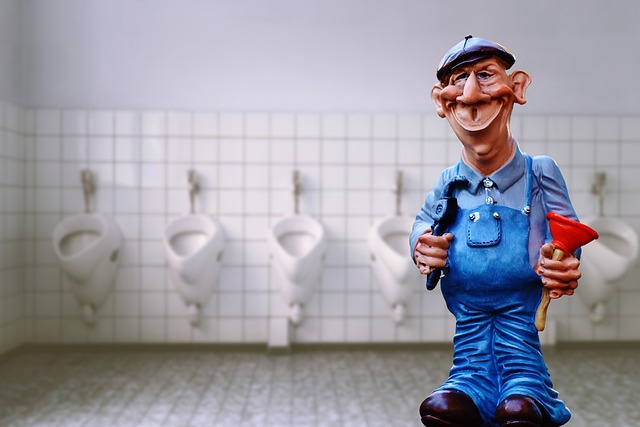Homeowners can save time, money, and enhance self-reliance by learning basic DIY plumbing skills for minor issues like unclogging drains and replacing faucets. However, complex tasks such as major repairs, gas line work, or repiping require licensed professionals to ensure safety, code compliance, and long-lasting solutions in the ongoing debate of DIY vs. professional plumbing. The choice depends on task complexity and comfort level with tools.
In the realm of plumbing, navigating blockages or minor repairs can be tempting for DIY enthusiasts. However, distinguishing between tasks suitable for personal tackle and those demanding professional expertise is crucial. This article equips homeowners with knowledge on DIY plumbing, focusing on tools like plungers and pipe wrenches. We explore when to tackle issues yourself and when to call a plumber, ensuring you make informed decisions in the DIY vs. professional plumbing debate.
- Understanding DIY Plumbing: Tools and Tasks You Can Handle
- When to Call the Plumber: Signs and Issues That Require Professional Help
- Choosing Between a Plunger and Pipe Wrench: A Comprehensive Comparison
Understanding DIY Plumbing: Tools and Tasks You Can Handle

When it comes to DIY plumbing, understanding what tasks you can handle is key before grabbing your tools or making a call. Many minor issues can be resolved by homeowners with basic knowledge and the right set of tools. Plumbing tools like adjustable wrenches, pliers, and plungers are staples for tackling everyday problems such as unclogging drains, tightening fittings, and replacing washerless faucets. These simple fixes can save you time and money, keeping your plumbing system in good working order between professional visits.
Choosing the right tool for the job is a significant aspect of DIY plumbing success. A plunger, for instance, is invaluable for clearing clogs in sinks, toilets, or showers, while a pipe wrench ensures secure and tight connections during repairs. While some tasks may seem daunting, many DIY enthusiasts find that learning basic plumbing skills empowers them to tackle small problems confidently, fostering a sense of self-reliance when it comes to home maintenance.
When to Call the Plumber: Signs and Issues That Require Professional Help

While many minor plumbing issues can be resolved through DIY methods, there are signs and problems that clearly indicate it’s time to call a professional plumber. Leaking faucets or running toilets might seem like simple fixes but could be symptoms of more complex issues within your plumbing system. If these problems persist despite your attempts at repair, it’s best to leave them to the experts.
Another red flag is severe clogs that don’t clear with standard drain cleaning tools. Heavy obstructions or root infestations in sewer lines often require specialized equipment and expertise to address safely and effectively. Additionally, any plumbing work involving gas lines, water main replacements, or extensive repiping should be left to licensed professionals who have the skills and knowledge to prevent potential hazards and ensure compliance with local building codes.
Choosing Between a Plunger and Pipe Wrench: A Comprehensive Comparison

When it comes to tackling plumbing issues, many homeowners wonder whether they should roll up their sleeves and try a DIY approach or simply pick up the phone and call a plumber. A crucial factor in making this decision is understanding the tools at your disposal, such as the trusty plunger and versatile pipe wrench.
For minor clogs and simple repairs, a plunger is often the go-to tool for DIY enthusiasts. Its design creates suction, effectively clearing blockages without causing damage to pipes. On the other hand, a pipe wrench is a professional’s ally, ideal for tight spaces and complex tasks like loosening corroded fittings or turning stubborn valves. While a plunger offers an easy, temporary fix, a pipe wrench provides precision and control, ensuring long-lasting solutions. The choice between DIY with a plunger or enlisting a professional plumber depends on the task’s complexity and your comfort level with plumbing tools.
When it comes to DIY plumbing, understanding what tasks you can handle is key. Whether tackling a simple clog with a plunger or tightening a loose pipe with a pipe wrench, these tools empower homeowners to maintain their plumbing systems. However, recognizing when to step away from the do-it-yourself projects and call a professional plumber is equally important. By knowing the signs of complex issues that require expert intervention, you can ensure your plumbing system’s longevity and safety. In the DIY vs. professional plumbing debate, striking the right balance between self-reliance and seeking help when needed is the true game-changer for any homeowner.
